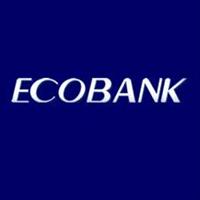European Investment Bank Provides 50M Euro Facility to ECOBANK

Dependable sources to The Point have revealed that European Investment Bank (EIB) and ECOBANK Transnational Incorporated (ETI) yesterday signed a facility for a 50 million euro to part-finance the growth of the Ecobank Group. According to the terms of the agreement, the EIB, European Union’s long-term lending institution, is poised to support ECOBANK’s expansion programme through the provision of stable long-term finance. Our sources further indicated that the project is fully consistent with the objectives of both institutions and among the benefits of the project are:
i. foster regional integration in the financial sector through support to a dynamic, African, international banking group
ii. enable the implementation of ECOBANK’s retail strategy which will extend the availability of credit and financial services to a larger segment of the population in West, Central, Eastern and Southern African countries and
iii. support private sector projects, particularly in the more difficult countries of the region, that the EIB cannot reach directly.
Commenting on the facility, ECOBANK Group’s Chief Executive Officer, Arnold Ekpe, said: “It strengthens our commitment to bring ECOBANK to the citizens of our target countries. It will help us reduce costs and improve efficiency through the first Shared Service Centre in West and Central Africa. The project will also help us achieve our dual mission which is: on the one hand to build a World Class African Bank and, on the other hand, to contribute to the economic and financial integration of Africa.”
Guus Heim, West Africa Regional Director for the European Investment Bank, said: “It will assist the development of the Borrower. It will also allow the EIB to support the financial sector in some of the post-conflict countries in which ECOBANK operates. The project also aims at supporting ECOBANK’s retail strategy, including investments in technology allowing for a lower overall cost of financial intermediation, which will ultimately allow the provision of financial services to poor or remote customers. At the same time, the project aims at fostering the development of ETI’s private sector financial operations.’’
Reflecting on ETI as a financial institution, our sources disclosed that ECOBANK Transnational Incorporated (ETI), incorporated in 1985, was the parent company of the largest independent regional banking group in Africa. The ECOBANK Group, the sources added, currently operates in 20 African countries, namely: Benin, Burkina-Faso, Cameroon, Cape Verde, Central African Republic, Chad, Côte d’Ivoire, The Gambia, Ghana, Guinea-Conakry, Guinea-Bissau, Mali, Niger, Nigeria, Liberia, Rwanda, Sao Tome, Senegal, Sierra Leone, and Togo. In addition, ETI is listed on the stock exchanges in Lagos, Accra and Abidjan (BRVM). The Group, with over 7,500 employees in over 450 branches, is said to be a full-service bank providing wholesale, retail, investment and transaction banking services and products to governments, financial institutions, multinationals, international organisations, medium, small and micro businesses and individuals.
Delving into the nature and history of the European Investment Bank (EIB), the sources noted that the institution was created in 1958 under the Treaty of Rome, adding that it finances capital projects that further the core objectives of the European Union (EU). In addition, the sources went on, the EIB also participates in the implementation of the EU’s cooperation policy towards third countries, which have cooperation or association agreements with the Union.
“Since 1963, the EIB has also been an active partner in the development of many African, Caribbean and Pacific (ACP) countries. Its operations in these countries form an integral part of the range of financial aid facilities made available to them by the EU under the Cotonou Partnership Agreement signed in 2000 between the EU and the ACP countries,” the sources disclosed. The operations contribute to sustainable economic and social development and to poverty reduction, even as the bank grants loans from its own resources, as well as “manages the Investment Facility (IF), a revolving fund financed by the EU Member States. The IF offers various financing instruments aimed at supporting technically, environmentally, financially and economically sound projects in the private or commercial public sectors. In 2006, the EIB’s lending in the ACP countries totaled EUR 745 million,” the sources concluded.
 Back and Next - Back and Next
Back and Next - Back and Next See Also - See Also
See Also - See Also